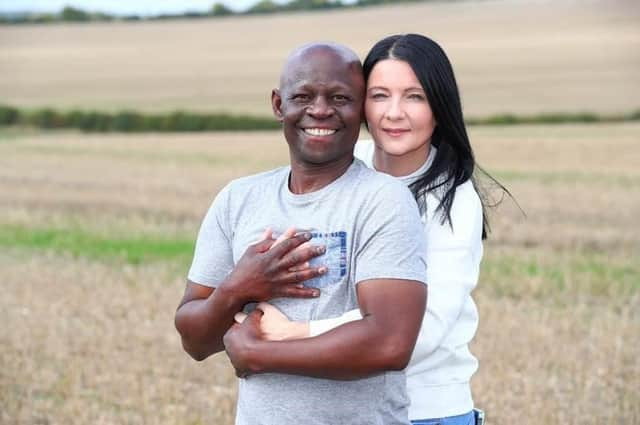My Diagnosis, Feb 11th, 2022
I have been an intensive care nurse in the NHS within the UK for over 27 years.
On February 11, 2022, at the age of 52, I was diagnosed metastatic breast cancer (cancer had moved from its primary location into my lungs & bones). My diagnosis has now made me aware that every year approximately 350 men are diagnosed with breast cancer in the UK and 55,500 women.
What I was also unaware of was that during the time of the Covid 19 pandemic I was working as an Intensive Care (ITU) senior charge nurse but had no idea that breast cancer had taken hold and was growing within me.
The primary lump was found by my wife of 25 years Emma whilst sitting watching TV, chatting & joking she accidently tapped my chest with the back of her hand and felt a hard lump in my right breast.
Emma questioned if I had realized the lump was present however I had no idea there was a lump in my breast as I had not ever checked or realized I needed to check for lumps.
We immediately sought medical attention via our GP who saw us straight away. From here we were referred onto the specialist breast team under the current two week wait care pathway.
Within two weeks of discovering the lump, we had been seen by our GP, the investigative breast team, had a fine needle aspirate (biopsy of the lymph nodes under the arm). Been given our diagnosis of breast cancer, been seen then by our breast surgeon who was hopeful of a possible surgery. However, following a full body scan and on realizing the cancer had spread surgery was no longer an option for us. So, we were referred to an Oncologist & a Clinical Nurse Specialist (CNS). As my diagnosis was now stage 4, palliative, incurable, in-operable breast cancer.
The news came as a shock & we faced many life changes we never expected during this time. Both Emma and I did not realize that men could even get breast cancer & Emma asked if male breast cancer even existed.
During the initial stages of the diagnosis, we knew breast cancer was predominantly associated with females. However, this became very apparent when arriving at the breast center with a waiting room full of female patients. On checking in with reception my son and I were told we would have to wait “outside”. Emma and I both explained to the receptionist that this appointment was for me, not for Emma.
The receptionist then asked our son and my wife to leave because of Covid restrictions (even though the waiting room was full of patients) the reception desk was within the waiting room and our conversation had been overheard by all. I was then asked to take a seat and wait to be called.
I was eventually called and even though I am an intensive care nurse, I felt very uncomfortable walking past a room full of patients to be greeted with a sign stuck to the entry doors which read “no males beyond this point unless accompanied by a nurse”. Although this is to safeguard patients’ safety & dignity, I felt I was not part of that.
Further testing releveled my cancer was HER2+ which meant it could potentially be controlled by the drug Herceptin. Cancer Research UK has been involved in the understanding of HER2’s role in breast cancer and helped to build the case for developing drugs to target it. It is believed Herceptin attaches itself to the HER2 protein and hinders cancerous cells from growing and dividing. As part of my treatment plan, I have been receiving Herceptin alongside other chemotherapy drugs. I have had two scans showing (no evidence of any new cancers detected). I feel I’ve been given a second chance.
My father died with prostate cancer, and I have always been vigilant when it comes to my own health. I had attended my wellness check at 50 but had not been told that I should also be checking my breasts for lumps.
Knowing how your breasts or chest normally look and feel can help you spot changes that are unusual for you. Symptoms may include a lump in the chest or underarm area, a nipple discharge, a nipple that is pulling inward, or a rash on the skin of the breast.
I hope my story will encourage other men to reach out and realize they, too, can be affected by breast cancer.
(Photo credit: Cancer Research UK)

